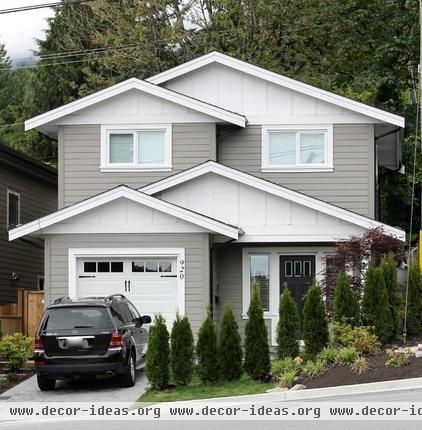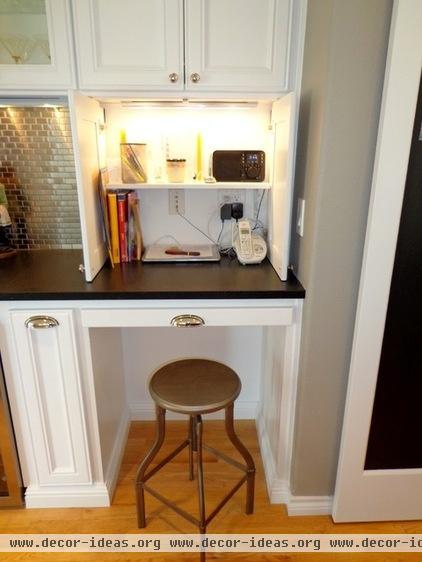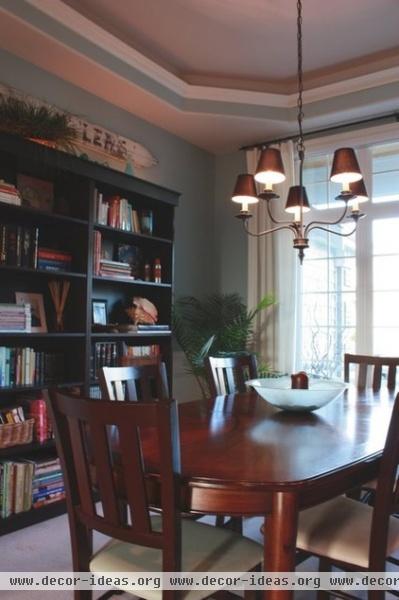10 Things to Discuss With Your Contractor Before Work Starts
http://decor-ideas.org 03/30/2014 22:25 Decor Ideas
All of the selections are made, the contract is signed, and you’re ready to start your construction project.
Not so fast! Before work begins, make sure you and your contractor are on the same page about how things will go. This often takes the form of a pre-construction meeting, which may be most useful when held at your home and at least one week ahead of construction — particularly if you have furniture or other belongings to move.
Here are a few of the most important things to cover at this meeting:

Working hours and days. Most construction companies have standard work hours. These may vary depending on whether the home is vacant or occupied. Make sure you understand if the contractor or subcontractors intend to work into the evenings or on weekends. Having this conversation at the start will help set expectations.

Parking and trash/recycling days. Depending on where your project is, there may be ample parking or almost none. Neighbors may be territorial about their parking spots. You may even need a permit from the jurisdiction where you’re working to park Dumpsters or other equipment.
Make sure you also communicate when your trash or recycling pickup takes place. You don’t want your contractor to block the road or alley with equipment on those days.

Access and security. Talk through how the contractor should access your home and where a key will be kept; and review security codes for alarm systems. Many alarm companies will allow you to set a temporary code for your contractor to use that’s separate from yours, so that when the job is done, the code can be canceled. Also talk about other security measures, such as fences and signs.

Communication and contacts. Get a complete list of phone numbers and email addresses for the contractor and the employee who is your main on-site contact. Make sure the contractor has all of your contact information as well, including an emergency contact, so that he or she can reliably reach you.
Ask how information about the project will be communicated to you. This could take the form of an email summary every day or every once in a while, a daily or weekly meeting, or updates posted to an online project management system. If you need communication in a way the contractor had not planned on, speak up and he or she may be able to provide it to you.
We had one project where the owners didn’t always get to talk to each other in the evening, so they requested that we send a daily email covering what was accomplished and what was happening the next day. They both knew they could count on that email to find out what was happening, even if they weren’t able to debrief each other.
What to look for in a contractor’s contract

Site and landscape protection. This is the main reason to have the pre-construction meeting on-site. It’s useful to walk around the house with your contractor to talk about where site protection will go (ZipWalls, temporary walls, tarps) so that everyone understands where the construction zone will be.
Temporary walls might have a door or lock — discuss what you prefer. This also gives you a clear idea of how much you need to move out. In larger projects, you may want to remove pictures and fragile items on walls shared with the construction area, as they may be rattled during demolition and framing.
Walking around the house will also give you the opportunity to talk about where to place the Sani-Can or Dumpster, where material can be staged, and which plants and trees should be protected. Expect to have to re-sod or restore areas where material is staged and workers are walking.

Neighbors. If you haven’t told your immediate neighbors yet, now is the time. Neighbors will likely be impacted by parking and noise, and it’s best to let them know ahead of time. Alert your contractor if you have neighbors who may be particularly sensitive, so that he or she can tread lightly if possible. This is also an opportunity to talk about whether your contractor plans to put up a sign and where it will go.
Location of utility shutoffs. On your walkabout make sure your contractor knows where all of the utility controls are: water, gas and electrical panel. They are concealed in some homes. Also, let your contractor know if there are appliances or circuits that cannot be turned off, like a deep freezer, pool pump or fish tank.

Household workers and pets. If you have cleaners, gardeners or other household help, it’s important to let your contractor know when those people are scheduled to be on-site. And think about suspending service while the project is underway.
If you have pets and intend to keep them on-site during construction, talk with your contractor about how and where you will confine them. Your contractor is unlikely to want to take on the responsibility for caring for and keeping track of your pet, so make sure you have a plan. Construction noise and disruption can be stressful for animals, so consider options for where your pets will stay.

Set a day and time for a regular meeting. The first meeting is really important, but subsequent meetings during construction are also important. Set a regular time — whether weekly, every other week or at certain milestones — so that you have the opportunities to see the work as it progresses, answer questions from your contractor and ask questions of your own.

Miscellaneous questions about billing, scheduling and anything else on your mind. You may be feeling entirely confident about how the project will go, or you may have dozens of questions — from how billing will be handled, to who will be there every day, to where the mail will be delivered while your mail slot is being demolished. This is your opportunity to ask any lingering questions ahead of starting day. Then you’ll really be ready.
More: 5 Steps to Help You Hire the Right Contractor
Related Articles Recommended












